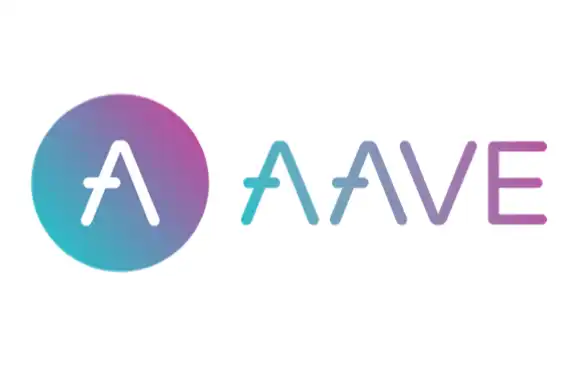Crypto’s Unofficial Dollarization Poses Risks to Stability in Emerging Markets
- Moody’s warns crypto adoption in emerging markets risks monetary sovereignty via stablecoins and DeFi bypassing traditional systems. - 562M users in 2024 use crypto for inflation hedging and remittances, creating "cryptoization" pressures outside central bank oversight. - Pseudonymous wallets and offshore exchanges enable capital flight, destabilizing currencies in markets with weak regulatory frameworks. - Regulatory asymmetry between emerging and advanced economies creates systemic risks, with informal
Moody’s Investors Service has cautioned that the increasing use of cryptocurrencies in developing countries presents major threats to monetary independence and financial stability, especially as stablecoins and decentralized finance (DeFi) platforms increasingly circumvent established financial systems. In a report released on September 26, 2025, the credit rating agency pointed out that the growing reliance on dollar-linked stablecoins for pricing and settlements could weaken control over local currencies, effectively leading to a form of unofficial dollarization. This trend diminishes regulatory oversight and heightens vulnerabilities in economies already facing inflation, fragile banking sectors, and risks of capital outflows.
The report highlights a sharp rise in cryptocurrency usage in developing regions, with global users surpassing 562 million by 2024—a 33% jump from the previous year. In areas such as Southeast Asia, Africa, and parts of Latin America, digital assets are frequently used to protect against inflation, facilitate international remittances, and compensate for inadequate banking services.
One of Moody’s main worries is the use of anonymous wallets and offshore exchanges to enable capital flight. The agency warned that people in high-risk economies might take advantage of crypto’s anonymity to quietly transfer assets abroad, destabilizing local currencies and undermining fiscal policy. This issue is especially pronounced in places where confidence in national currencies is low and regulatory systems are fragmented.
The report also pointed to differences in the reasons for crypto adoption between developing and developed economies. While emerging markets are attracted to crypto for its usefulness in remittances and as a hedge against inflation, advanced economies are more focused on integrating crypto into institutions and clarifying regulations. This split has created a global crypto environment with two distinct tiers, leaving emerging markets exposed to greater systemic risks. Moody’s used Southeast Asia and Africa as examples of regions where crypto is mainly used in informal sectors, in contrast to the more formal adoption by institutions in North America and Europe.
Financial stability is further challenged by the absence of strong regulatory systems in many developing countries. The agency observed that governments often lack effective tools to track or address crypto-related threats, such as stablecoin failures or DeFi scams. This regulatory shortfall could worsen contagion risks, especially in markets heavily reliant on dollar-backed stablecoins. For example, a sudden collapse in confidence in a major stablecoin could cause liquidity shortages and force central banks to take expensive measures to support their currencies.
Moody’s also drew attention to the broader economic effects of crypto-fueled capital outflows. In countries with limited foreign currency reserves, managing capital controls becomes more difficult, making them more susceptible to external shocks. The agency cited Latin American and African nations as examples where widespread crypto use could intensify existing problems, such as high government debt and dependence on commodity exports.
The report’s conclusions are consistent with global patterns in crypto adoption. By 2024, the use of stablecoins in international payments had grown rapidly, with projections indicating the sector could process $4 trillion in yearly transactions following the GENIUS Act reforms. Nonetheless, Moody’s warned that this expansion could undermine financial stability in regions that are not equipped to handle the challenges of decentralized finance.
Disclaimer: The content of this article solely reflects the author's opinion and does not represent the platform in any capacity. This article is not intended to serve as a reference for making investment decisions.
You may also like
Assessing Bitcoin’s Price Movement in Light of Macroeconomic Changes and Positive ETF Sentiment in November 2025
- Bitcoin faces macroeconomic headwinds in 2025, with Fed tightening causing a 15% crypto market cap drop, but ETF approvals drove 45% growth in institutional Bitcoin ETF AUM to $103B. - Institutional investors navigate $81k-$91k Bitcoin consolidation, balancing Fed policy risks against 68% adoption rates and regulatory clarity from EU MiCA and U.S. GENIUS Act. - Strategic entry strategies include core positions at $85k-$87k support, hedging with stablecoins/altcoins, and timing Fed rate cut expectations t

Moonbirds to launch BIRB token in early Q1 2026

Yearly $10M Loss in Revenue Triggers Governance Dispute, Aave Labs Accused of 'DAO Treachery'
Aave Labs and Aave DAO's conflict regarding frontend integration and fee ownership fundamentally revolves around questioning a core issue: the control and distribution of the value created by the protocol.

Market Share Plummets by 60% - Can Hyperliquid Stage a Comeback with HIP-3 and Builder Codes?
What recent events has Hyperliquid experienced?
